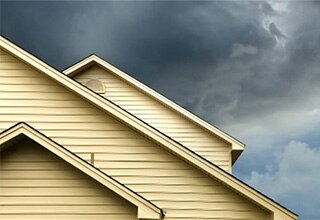- text
-
= A discount of 10% is applied to your premium when you combine Building and Contents on one Home Insurance Policy. The discount will apply to the first 12 months of your Everyday Home Insurance policy. The discount will be reapplied for 12 months each time your Everyday Home Insurance policy is renewed so long as you continue to combine Building and Contents on one Home Insurance policy and Everyday Insurance continues to offer the discount. Minimum premiums apply which could reduce any discount you are entitled to. Discount does not apply to taxes or government charges and optional non-insurance services.

Home Insurance
14 Jan 2025
What you need to know before you move out.
What you need to know before you move out.
Moving out for the first time is exciting – you are finally in control of your life, you have freedom to do whatever you want and you answer to no one. Well, almost no one. Before you make the leap from living at home to living on your own there are several things you need to know.
Read the tenancy agreement.
If you are renting a place the first thing you should do is become familiar with the tenancy agreement. This is an agreement between you and your landlord. It is a legally binding contract, so it is really important that you read and understand its contents. Be aware of your rights, protections, and your responsibilities to avoid getting into a hairy situation. Things to be aware of include:
- The length of the lease
- Renewal options
- What, if any, rent is paid in advance
- Bond conditions
- Conditions of breaking the lease
- Policy for adding someone else to the lease
Get rid of things you won’t need.
You’ve probably accumulated a lot of stuff over the years and now is the perfect time to purge. After all, you’re probably not going to need the boxes of old clothes that no longer fit you, or old books you’ve kept in your parent’s garage for years. Ridding yourself of these unnecessary items will give you room for essential items that you are going to need when living on your own.
Money will become a bigger focus.
Living with your parents may have given you more financial freedom; you have less to pay for – meaning you may not focus too much on your finances. When you’re out of home, after paying rent, bills and groceries you’re going to find that you’re no longer able to pay for everyone’sdrinks at the table. This is when budgeting becomes not only important, but necessary. Even if you’re not the best budgeter, it’s a good idea to note down your monthly expenses to determine what you can afford after all the essentials have been paid for, and what you could potentially save. However, a budget won’t save you from poor purchasing discipline, so you need to build good purchasing habits.
Living with another person.
It’s highly likely that your first out-of-home experience will be living with a flatmate or in a share house. This can be an awesome experience, but it can also be extremely difficult. It doesn’t matter whether you’re living with your best friend, five strangers, or your partner, you’re going to face a lot of the same problems. Issues like paying the bills on time, lifestyle incompatibilities, arguments, space considerations, using others’ belongings and so forth can cause conflicts in the home. It will happen, and it’s up to you to be able to handle it in a mature and adult way by being upfront, honest and respectful.
Selecting the right type of home insurance.
When you make that move for the first, or even for the umpteenth time, protecting your home’s contents is always important. There are a number of ways you can protect yourself from events like fire, theft or malicious damage. Home Insurance is an important way to protect your belongings, whether you own the property you live in or you’re only renting.
Renters should consider purchasing a contents only policy that covers the cost of replacing or repairing your unfixed possessions. This could include furniture, clothes, electrical goods and some jewellery. There are two levels of cover to select from with Everyday Insurance – Standard and Comprehensive.opens in a new tab
Whether you are a home owner or renter it is important to conduct a fire safety audit to help minimise the risk of fire and to develop a plan for what to do in the event of a fire.
And when you make that decision to move properties, it’s easy to change your contents insurance cover from one property to the next. Simply contact your insurer to inform them of your new address. To make the process even easier, it’s great if you have your new address and the date you are moving at hand.
And enjoy the challenge.
You’ll make a mistake or two (or three) during your renting years, you may live with the wrong people, or have disagreements with your landlord. Moving out is a big learning experience but there’s a lot you can do to help make this a seamless and fun experience.
Why pick Everyday Home Insurance?
Related articles.
- text
-
Cover and benefits are subject to eligibility criteria and terms and conditions, including the limits and exclusions of the insurance policy. Any advice provided is general only and may not be right for you. Before you purchase this product you should carefully read the Home Insurance Product Disclosure Statement and consider the Target Market Determination to decide if it is right for you.




